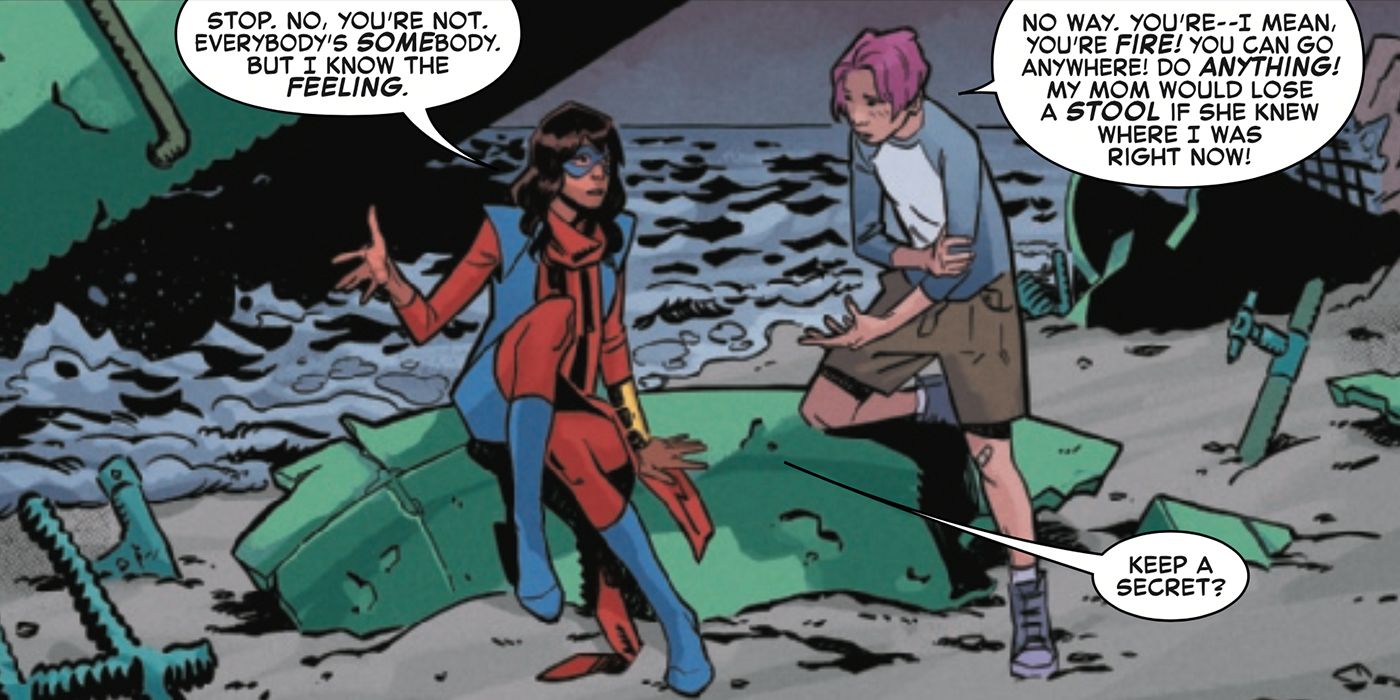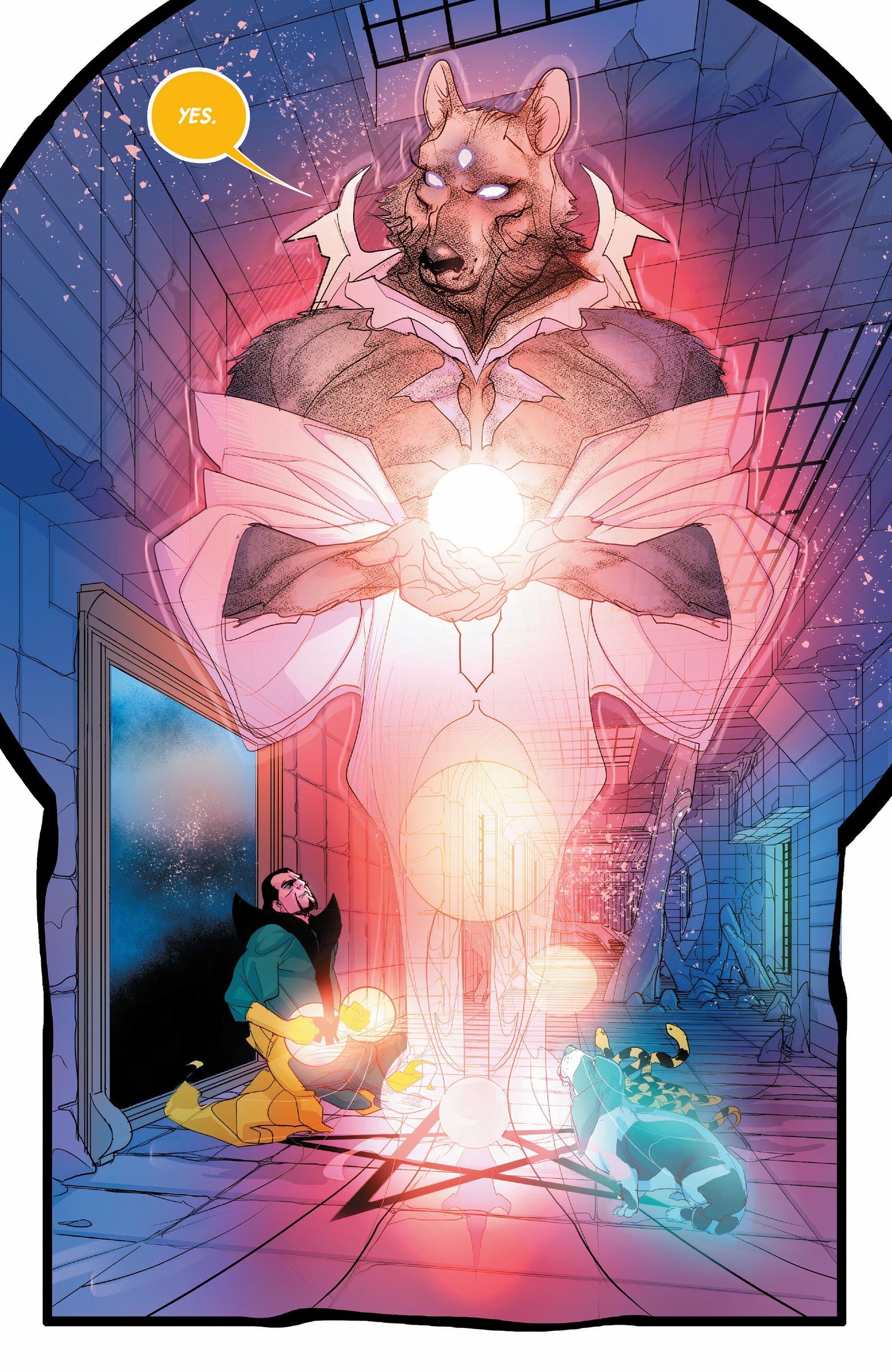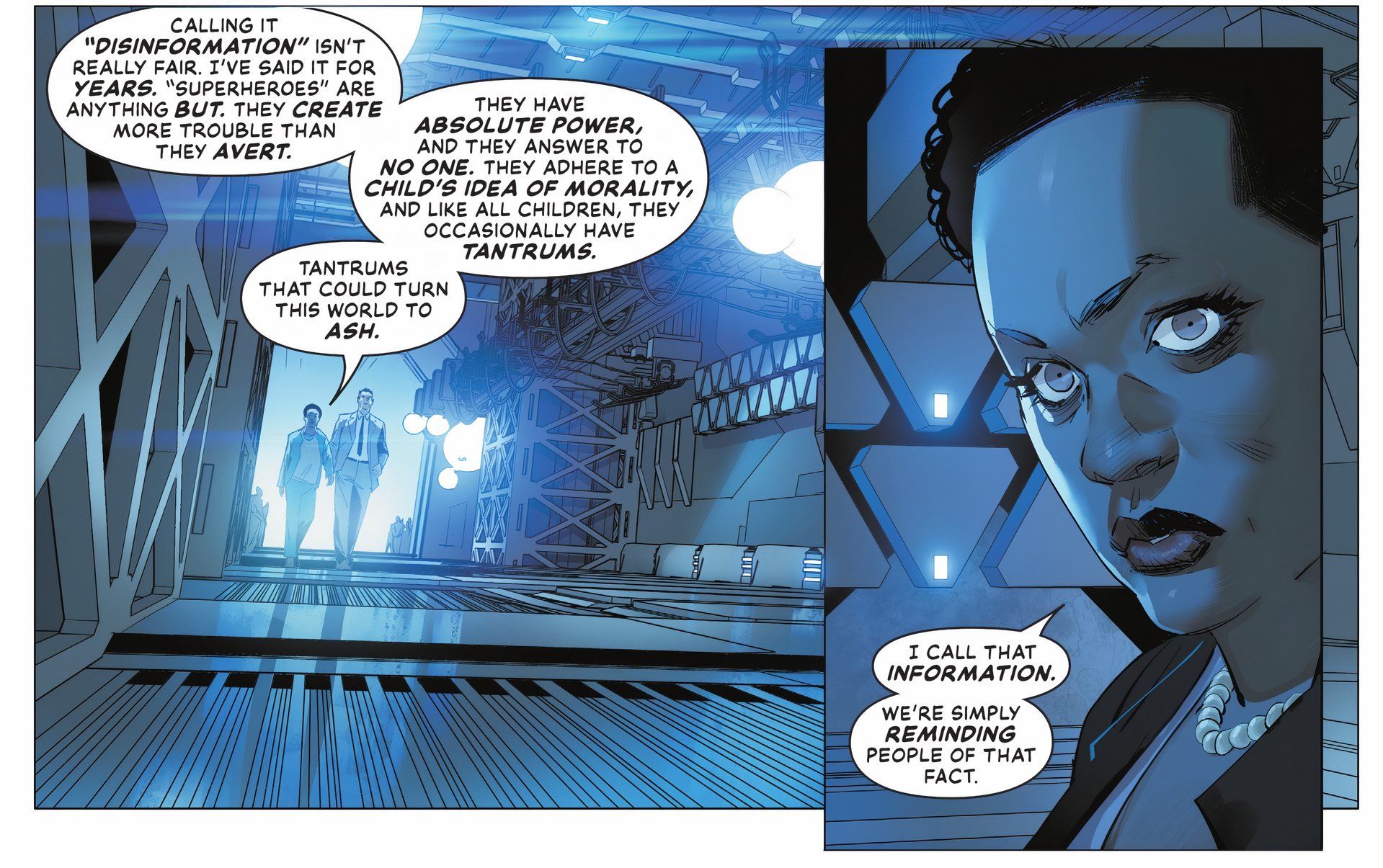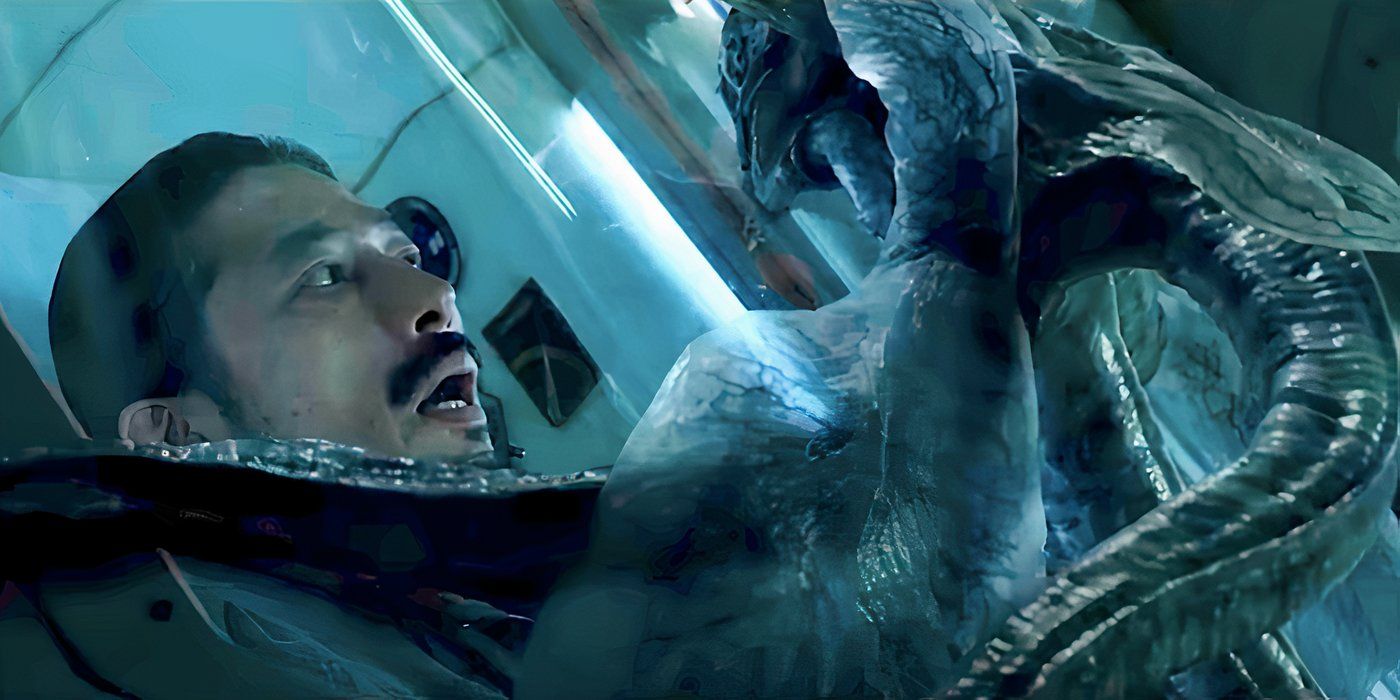Warning: spoilers for Captain Marvel: Marvels Snapshots #1 are ahead.
Ms. Marvel (Kamala Khan) is one of Marvel Comics’ most beloved superheroes. Since picking up the mantle as Ms. Marvel from her hero, Carol Danvers, Kamala Khan has created a niche in the Marvel Universe that celebrates and chronicles the growing pains of being an Asian American superhero. A new comic from the ongoing Marvels Snapshots series highlights Kamala’s impact for teens everywhere, showing that her greatest power is not the ability to shapeshift, but rather her ability to relate to others and their feelings of alienation.
In Captain Marvel: Marvels Snapshots #1, an Asian American teen named Jenni Saito stumbles upon Captain Marvel, Ms. Marvel, and the other Avengers fighting a battle on a beach in Long Island, New York (written by Mark Waid, art by Claire Roe, colors by Mike Spicer, letters by VC’s Joe Caramagna). A huge fan of Ms. Marvel, Jenni shyly asks for a selfie, before worrying that she, “a nobody,” is taking up too much of Kamala’s time. Kamala refutes this, saying, “Stop. No, you’re not. Everybody’s somebody.” But to Jenni, Ms. Marvel is “fire,” with an endless ability to “go anywhere” and “do anything,” which Kamala reveals isn’t the case as she details the challenges of being a Muslim, Pakistani-American teen hero. Just like Jenni, Kamala also experiences friction with her parents around her social life, and that being a superhero still doesn’t exempt her from their rules.
Kamala’s conversation with Jenni shows an additional side to being a superhero that Captain Marvel: Marvels Snapshots #1 celebrates. While saving innocent civilians from danger and protecting the city from threats of all kinds are absolutely all part of being a superhero, the issue spotlights the unsung role that heroes can have in making marginalized people feel less alone. This counteracts the impulse that the public has to place superheroes on a pedestal, because Kamala shows just how hard it can be to be one.

Kamala’s openness with talking about the challenges she faces in her personal and public lives as both a teenager and a superhero puts her in the unique position of helping other young people. Jenni’s belief that Ms. Marvel isn’t subjected to the same strict parenting as her reveals how often superheroes are seen as being outside the bounds of typical life. The distance between someone like Jenni and her hero Kamala is closed the moment Kamala opens up about the reality of her situation: being a superhero isn’t an escape from the usual pressures of being a teenager.
The role that Kamala’s family plays in her arc as a superhero is an important component of her character, because it shows people like Jenni that truly anyone can be a superhero. Jenni feels alone in the strictness that her mother has in her parenting, and Kamala’s delineation of the rules that her own parents place on her exemplify that there is no singular way to be a superhero. Having strict parents is a commonality that some teenagers share, regardless of whether or not they are masked crimefighters in their spare time.
In her debut, Kamala may have gained her shapeshifting powers from the Terrigen Mist, but where she succeeds most as a hero is in her ability to identify the normalcy in superheroism. As one of the only Muslim superheroes of Pakistani descent, Kamala understands what it is like to be seen as exceptional. One of the most compelling aspects about her character is how passionately she fights for young people to understand that they are not freaks for being different, and how willing she is to share details from her personal life so others can understand that she is just like them. At the end of the day, this is Ms. Marvel’s legacy as a superhero, and it is a legacy that will continue on in superhero comics for decades to come.




